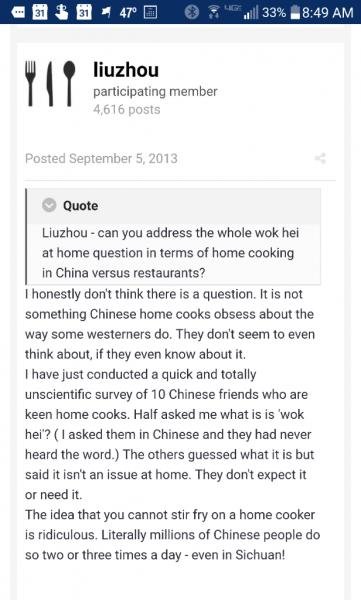Greg Who Cooks
Executive Chef
I use a non-stick pseudo-wok with a flat bottom over an ordinary gas burner.
My Asian food tastes as good to me as restaurant Asian. Often better. Maybe part of that is the boost you get from doing your own.
I once spent a whole month cooking Thai only, for the experience. I'm not just a casual Asian enthusiast. If I had to pick just one cuisine to eat for the rest of my life Asian would win hands down.
My Asian food tastes as good to me as restaurant Asian. Often better. Maybe part of that is the boost you get from doing your own.
I once spent a whole month cooking Thai only, for the experience. I'm not just a casual Asian enthusiast. If I had to pick just one cuisine to eat for the rest of my life Asian would win hands down.



 .
.